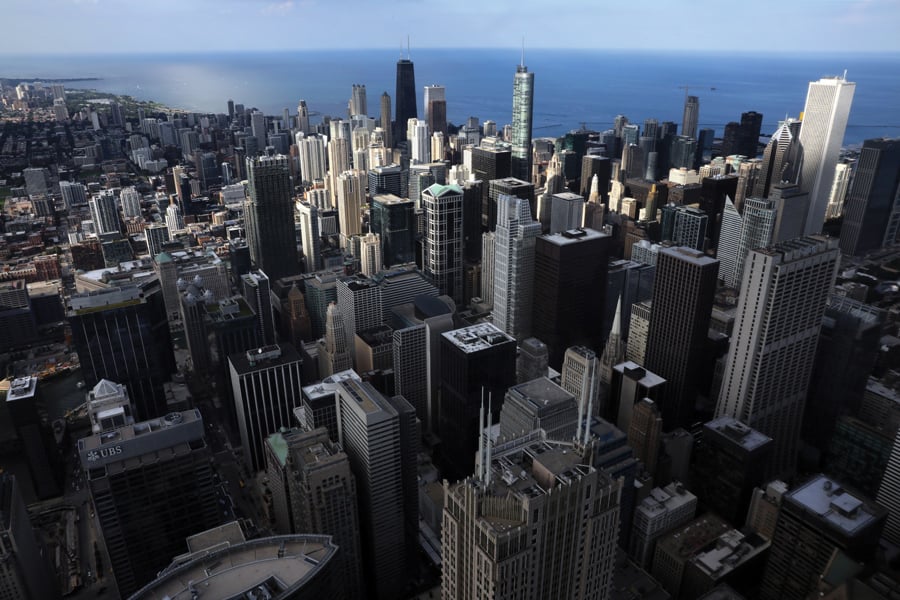Chicago Democracy Project maps political history of the Windy City
Photo by Terrence Antonio James (Chicago Tribune/TNS)
Founded by Weinberg Prof. Jamie Dominguez in the early 2000s, the project is co-directed between him and Weinberg Prof. Thomas Ogorzalek as a part of the NU’s political science department.
February 25, 2020
For nearly two decades, the Chicago Democracy Project has been managing an online record database on candidates, election years and offices of the Windy City.
Founded by political science Prof. Jamie Dominguez in the early 2000s, the project is co-directed by him and political science Prof. Thomas Ogorzalek as part of NU’s political science department.
Co-directors, graduate affiliates and undergraduate students of the project hope they can “bridge the digital divide” between academia and the larger public.
In addition to a candidate’s political record and mapped results, they can also read analysis on recent Chicago political events like the Chicago Teachers’ Union Strike, segregated neighborhoods and the 2019 municipal election.
“Chicago politics gets studied a lot is one thing we can say,” Ogorzalek said. “So it’s sort of famous for being a town where it has a distinctive brand of politics. And typically, Chicago politics is seen as very sort of unified. There’s a long-standing Chicago machine.”
Through the database, Ogorzalek said he has seen this trend dramatically change in the last Chicago election, which elected Lori Lightfoot, the city’s first black female and openly-gay mayor. Ogorzalek said in 2007 when Richard Daley ran for office, he won the majority in every ward of the city. As of the most recent election, this is no longer the case.
“Now, it’s not at all predictable,” Ogorzalek said.
Ogorzalek said he contributes part of this shift to a progressive wave, which is part of a national trend to try to change local politics in big cities, such as Los Angeles, New York City and San Francisco.
Studying Chicago’s political trends are not all due to Northwestern’s proximity to the city, SESP junior and Chicago native Jacob Wu said.
“(Chicago is) often kind of a place of experimentation and a place where a lot of, I guess national trends are started on,” he said. “It’s kind of considered like a bellwether city that determines how city politics eventually shapes news throughout the rest of the country … what happens in Chicago usually just doesn’t stop there.”
Wu has been working as a research assistant at the Chicago Democracy Project through the Farrell Fellowship, which matches students to work alongside professors who are conducting research projects. Wu said his interest in Chicago politics goes beyond the Midwest as donations flow in from both sides of the coasts.
Even though the project focuses on local data, Wu said, analyzing Chicago politics can be relevant to the 2020 Democratic primary. The upcoming primary can be compared to the past mayoral election, which witnessed a record number of candidates and small differences in votes.
Following the news of a runoff election, the project published a report in March 2019 on Lightfoot and her opponent, Toni Preckwinkle’s overlapping bases. It concluded that Preckwinkle had more support from west and south wards, and Lightfoot performed better on the North Side and lakefront neighborhoods.
Katherine Conte, a Weinberg junior and research assistant said the database’s use goes far beyond academic research. Local political candidates can use recent data to develop campaign strategies, which helps increase accessibility and democratize the political process, she said.
“It’s good information to have in order to be an active participant in local politics, participatory democracy, all that,” she said. “We want the CDP to help inform individuals’ choices in terms of how they interact with, like their local community and engage in what’s happening around them.”
Email: [email protected]
Twitter: @yunkyomoonk
Related Stories:
– ‘This is not what democracy looks like:’ Northwestern students travel to Iowa to canvass for candidates, attend historic caucuses












